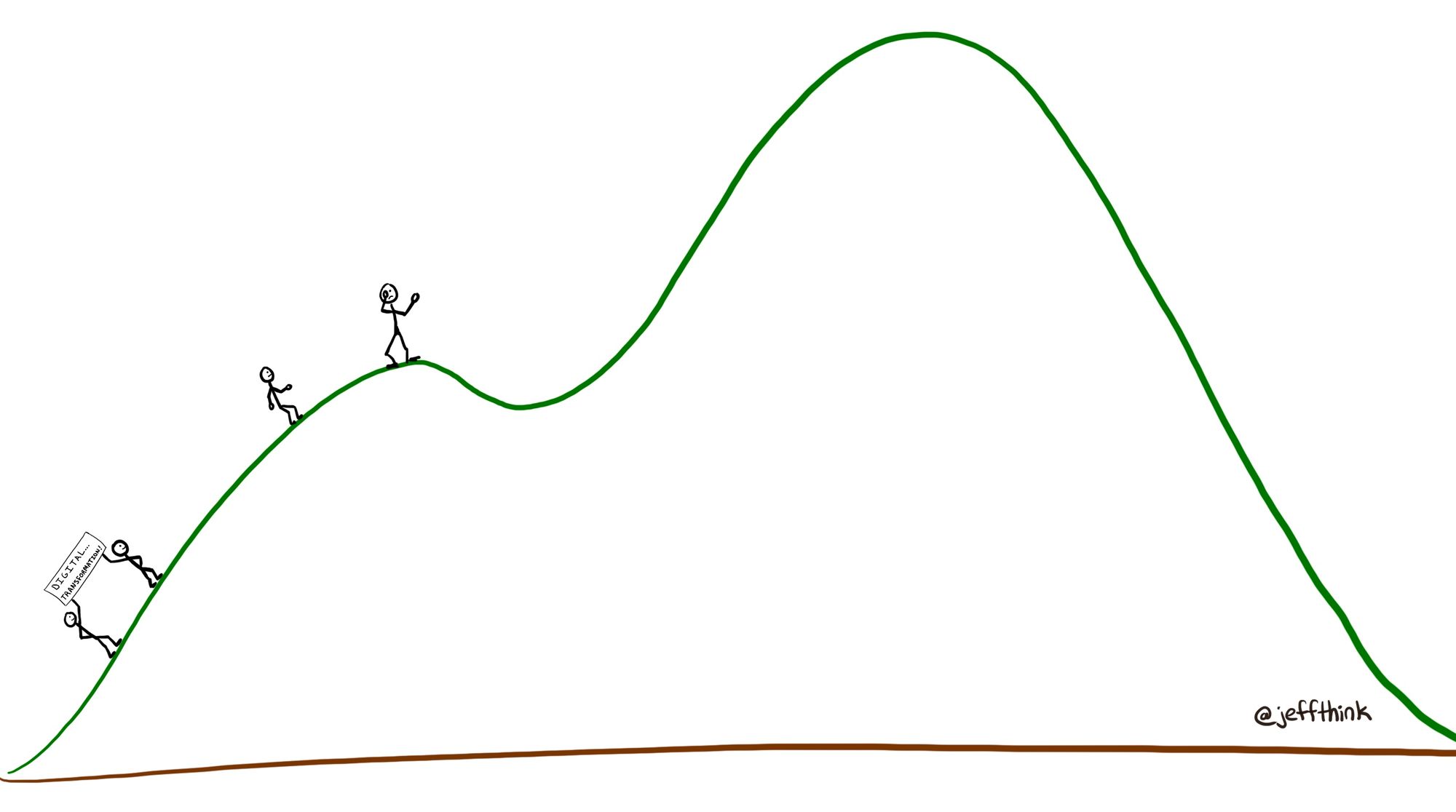You’ve done it! You’ve reached the top….”
…of a ridge. Not the summit. A f*cking ridge. Your heart pumps and your head pounds as you realize with dread that there is quite a bit more elevation still to go.

While all hikes begin the same — one foot stretched out in front of the other — some end prematurely when a hiker optimizes their energy expenditure towards reaching a “false summit.” In Mathematics, we call this concept a “local maximum” — i.e. it’s the highest value in a mathematical function, but only within a given range. The “global maximum” is the highest value in that mathematical function without any conditions.

I sometimes see this phenomenon in my consulting work. An organization will take their first steps up some proverbial mountain, waving a “we’re becoming agile” banner and blissfully unaware of what the summit looks like. As a result, many reach a ridge — some local maxima of performance — and settle in there, instead of continuing to climb towards the top. Sure, things are better than before, but they’re less than what they could be, and the organization may have expended its energy and good will prematurely.

Consider these questions that may help guide an “Am I at a local maxima?” reflection:
- Organizations — are you focusing on short term goals (quarterly results, next infusion of funding, etc.) instead of on a multi-year strategy and sustainable business model?
- Leadership teams — are you focusing on your respective teams and budgets instead of aligning the organization around common goals?
- Product managers - are you focusing on a framework for prioritizing lots of small features, instead of ensuring you’re working on a small set of the right problems?
- Engineers - are you focusing on sprint rituals and technology minutia over iteratively rolling out things that bring value to your users?
- Designers — are you focusing on small UI problems over the full user experience?
- Marketers — are you focusing on campaigns and clicks instead of feelings and framing?
- Operators — are you focusing on micro-optimizations of existing processes instead of re-evaluating whether these are the right processes to begin with?
- Data scientist — are you focusing on wrestling messy data per analysis, instead of doing the data modeling work that will make all future analyses more productive?
These are just some examples, and the specific questions are less important the the reflection process itself. As a mentor often asks me when I come to her for advice:
What are you optimizing for right now?



